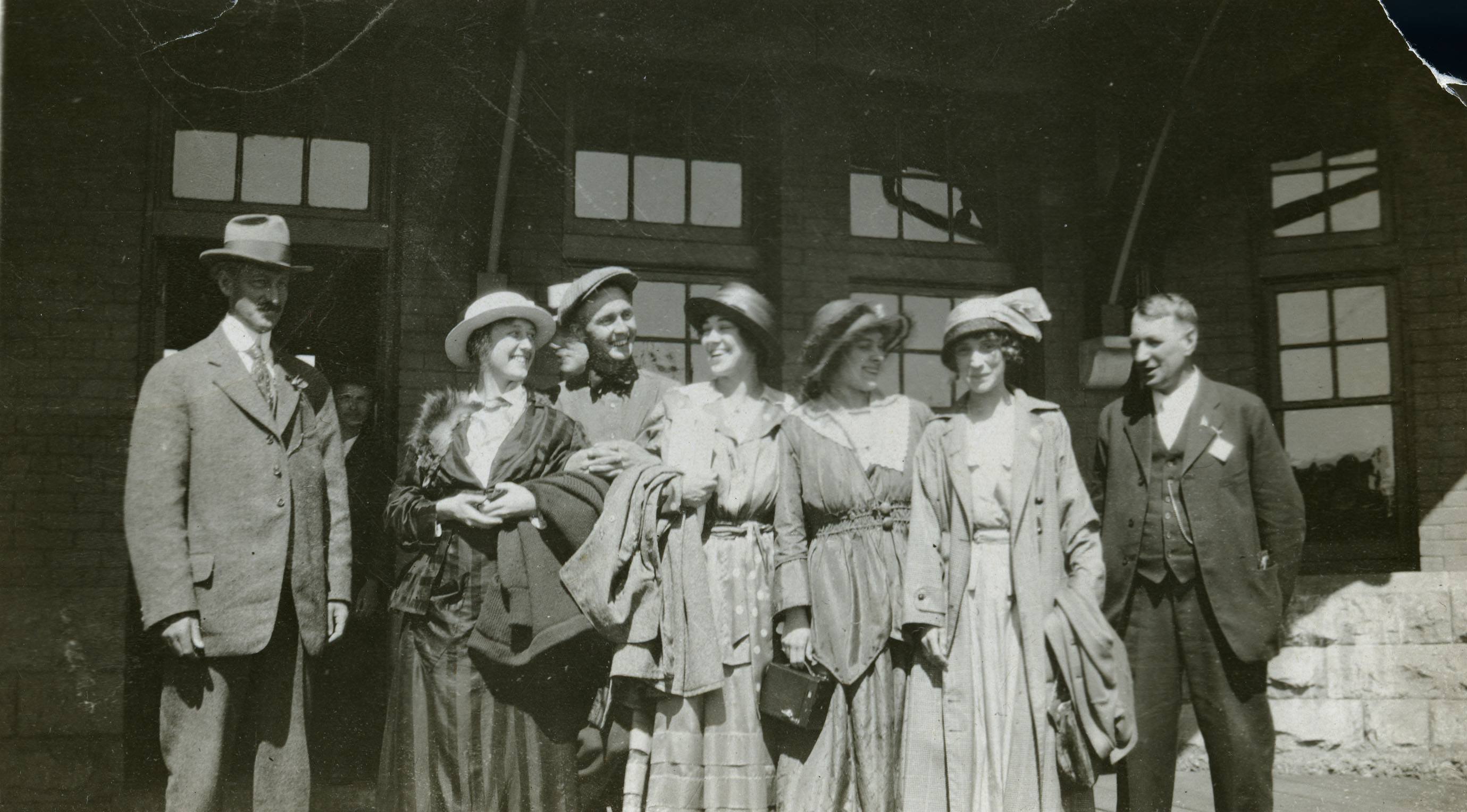Canada is currently celebrating the 150 anniversary of Confederation – an event formally (although not probably not commonly) referred to as the Sesquicentennial. The Canadian centennial year of 1967 was full of celebrations and events and is still considered one of most successful milestone years in our country’s history.
In contrast, Canada’s Golden Jubilee or 50th anniversary of Confederation in 1917 was a very subdued event. The nation was embroiled in the horrific First World War. All of the country’s resources and attention were devoted to the war effort. Short of an unexpected early peace, there was no public mood to have any kind of widespread public celebration.
Every issue of the local newspapers brought a reminder of the enormous scope and cost of the war. For example, the Hill End community, south east of Red Deer and Penhold, held a special memorial service for 11 young men who had already lost their lives overseas. That would have been almost all the young men of the district between the ages of 17 and 40. A whole generation in that one community had been lost.
In June 27th, 1917 edition of the weekly Red Deer News, photos and background of four of the lost Hill End soldiers were printed along the top of the front page. Shortly before that, word was received of the death of the beloved Rev. Webster Fanning-Harris, the former minister at St. Luke’s Anglican Church. He had finally succumbed to the terrible wounds suffered from the shellfire that had hit while he was conducting a front-line funeral service during brutal Battle of the Somme. Fanning-Harris was the first Canadian chaplain to lose his life while on active service during the war.
This is not to say that there were no observances of the Golden Jubilee of Confederation. Every church in Red Deer held special commemorations, either as part of the regular Sunday morning services on July 1st, or as special anniversary services on the Sunday evening.
The Canadian Government declared Monday, July 2nd to be a special national holiday to mark the Jubilee. An attempt was still made to offset any criticism of this holiday by also making it a special Red Cross Day. People were encouraged to use any events held on the holiday Monday as fundraisers for the Red Cross. That national organization would thereby have more funds and resources to support the soldiers serving overseas, and any of their families in need back home.
One unique local event was also organized by Edward Michener, Red Deer’s MLA and leader of the Conservative opposition party in the Alberta Legislature. Michener had been very narrowly re-elected in Red Deer riding in the June 6th, 1917 provincial election.
It had been initially thought that Michener had lost until reports of some surprisingly strong support at Rocky Mountain House came in. In particular, Michener had won the Pleasant Vale poll by a vote of 27 to one. That provided him with the crucial 25 vote margin by which he won the entire constituency.
Consequently, a very grateful Michener and the provincial Conservative party organization organized a special train to travel from Red Deer to Rocky Mountain House on July 2nd. Time was taken for stops to make speeches of thanks and celebration at the various communities along the rail line, such as Sylvan Lake, Eckville, Condor and Alhambra. The Red Deer Citizens’ Band went along to make sure that there was lots of festive music at each stop.
Once in Rocky Mountain House, there was a full day’s schedule of sports competitions. These included foot races, track and field events, tug-of-war contests and a special baseball game between Red Deer and Rocky Mountain House.
The afternoon was capped with a lavish picnic, accompanied, of course, by performances by the Red Deer Citizens’ Band and lots of rousing political speeches by Edward Michener and his political allies.
As to be expected, all of the speeches were full of reminders that Confederation had been accomplished in 1867 under that leadership of the Conservative Prime Minister, Sir John A. MacDonald.
Despite the success of these special celebrations, Edward Michener resigned his seat a few months later and was appointed as Red Deer’s first and only member of the Senate by Conservative Prime Minister, Sir Robert Borden.



